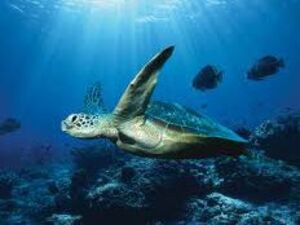
Bigger not necessarily better for reefs
Mon 13 September 2010
Bigger not necessarily better for reefs

A U.N. study has showed that a network of small no-fishing zones are a more effective way of dealing with threats to the world's coral reefs than large protected areas.
Peter Sale, a leader of the study at the U.N. University's Institute for Water, Environment and Health was quoted as saying "People have been creating marine protected areas for decades. Most of them are totally ineffective."
"You need a network of protected areas that functions well," he said. "It's important to get away from single protected areas which has been the common approach."
Mr Sale said the Great Barrier Reef was a good example of management, with a network of no-fishing zones and other areas open to tourism and fishing.
Ocean currents mean that marine creatures can be carried, or swim, from even the largest conservation zones.
The report stated a network of small no-fishing zones covering the reefs most at risk, with catches allowed in between, strikes the balance between protection and commercialisation.
Climate change and ongoing pollution problems are causing ocean temperatures to rise and coral to be damaged. This combined with over-fishing are the biggest threats to marine health.